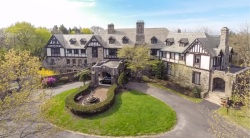
Our school systems are designed to educate all children regardless of their intellectual or emotional strengths or weaknesses. The disadvantaged children with learning deficiencies have the same access to teachers and learning resources that gifted and talented children have. It’s basically the law of the land.
Is this a good or a bad thing? That might depend on your child’s own intellectual and emotional characteristics. If your child is gifted, do you feel your school is providing the opportunities to develop those gifts?
Or do you feel your child is being held back and prevented from growing as much as he or she could? Are there other issues with teachers or students that are interfering with a satisfying educational experience?
As the guardian of your child’s education, you may want to monitor the advantages and disadvantages of your child’s current educational environment. If it is not ideal, there are alternatives to consider.
No one left behind – and no one gets ahead
The national educational policy is designed to educate all students so that there is No Child Left Behind. Since this policy was established, low-performing students have seen gains in learning achievement. But as teachers strive to pay attention to this segment of the student population, they admit that they have less time for high-ability students.
60 percent of teachers report that their top priority is low-achieving students. Only 2.3 percent report that high-achieving students are their top priority.
So what is going on with your child? Are there programs in place and enough teacher time to support your child’s special talents and interests? Is your child happy or is he frustrated and acting out? Is there any chance he is getting ahead?
Or is it time to suggest something more – like enrichment or acceleration or grade skipping?
After school enrichment programs help
Gifted students show a wide range of learning abilities. In order to avoid stagnation, their education needs to be enriched and/or accelerated.
After school enrichment programs can be a special grouping of children to further explore their interests and challenge their thinking. Being with peers should stimulate the interaction and mutual support needed to foster growth of self-image and confidence. It will help gifted students feel more comfortable and less anxious.
Enrichment can be provided by pull-out resource rooms, special projects involving self-learning or cooperative learning, field trips, competitions and more.
But enrichment programs have limitations. While they don’t harm children emotionally or socially, they also don’t necessarily learn from their peers. And they don’t learn at a faster pace or at a higher level. The curriculum is expanded but not accelerated.
 Acceleration is better
Acceleration is better
Gifted students need to learn at their optimal pace and level. By maximizing both, the curriculum will encourage the full attention of students and drive their commitment to learning.
There is a problem in finding the right pace and level for gifted children. They all learn at different rates and think at different levels. The Davidson Institute for Talent Development has tested gifted children with IQs of 120 and above, and identifies the profoundly gifted as those with IQs of 145-160 or higher.
Acceleration has proven to be the best way to optimize the individual talents of gifted students. Just grouping of children for enrichment classes is not effective. It does not provide what is really needed – grouping of children in an accelerated curriculum.
Research has shown that grouping gifted students and giving them the same curriculum as non-gifted children has minimal academic effect.
How to measure for grade skipping
When students are with their intellectual peers, they feel better about themselves and perform better. But how do you know it is time for your child to skip a grade? There is a tool that can help, called the Iowa Acceleration Scale (IAS).
The IAS helps parents and educators to decide whether acceleration is appropriate for a student based on several factors including classroom setting, social interaction and needs, and family impact.
It is used in all 50 states and in Canada, Australia and New Zealand. It has 10 sections including the student’s ability and aptitude, family history, school history, and student’s personal feelings about acceleration.
The IAS provides a lot of information for parents and comes with a detailed manual that explains the various sections of the test. It provides samples of completed forms as well as case studies of other student situations.
The IAS also comes with a summary of the research used so that teachers, parents and other educators can do further study on acceleration.
This analysis can suggest that a student would be better off with subject or grade acceleration – or both. A gifted child working with like-minded peers at an accelerated pace on the appropriate grade level for them is the best form of education they can get.
The little fish adapts quickly
Gifted children can suffer low self-esteem when they learn beside less gifted children. They are less motivated. When they are accelerated and in class with intellectual peers, they develop a healthier self-image.
At first, they may seem intimidated, especially if they are with older children, but soon overcome this feeling. This short-term effect is called the Little-Fish-Big-Pond effect. As the students find more friends in the class, their self-esteem takes a big jump.
A faster start means a higher finish
Grade skipping (sometimes called green-shirting) and acceleration can have a surprising effect on a person later on in life. Ambition starts early, and studies have shown that students who accelerated at a young age were more inclined to seek advanced degrees as adults.
Accelerated students sought careers that required advanced degrees. A recent study showed that 88 percent of accelerated students wanted a master’s degree or higher compared with 73 percent of other students.
Ambitious children who accelerate become ambitious adults who succeed
Research has shown that gifted accelerated students do just as well on achievement tests as older, gifted but non-accelerated students. The accelerated students are ahead of the game. They become equal to their older classmates.
Students who skip a grade advance their education significantly. One year of skipping is one-twelfth of their primary educational years. Two years is one-sixth.
And the added benefits of adult ambition and achievement are the topping on the cake. Acceleration through grade skipping has the potential for life-changing effects.
But the bottom line is happiness for your child. If he wants to stay in his present school, let him. If he (or she) is not happy, enquire about grade skipping.






